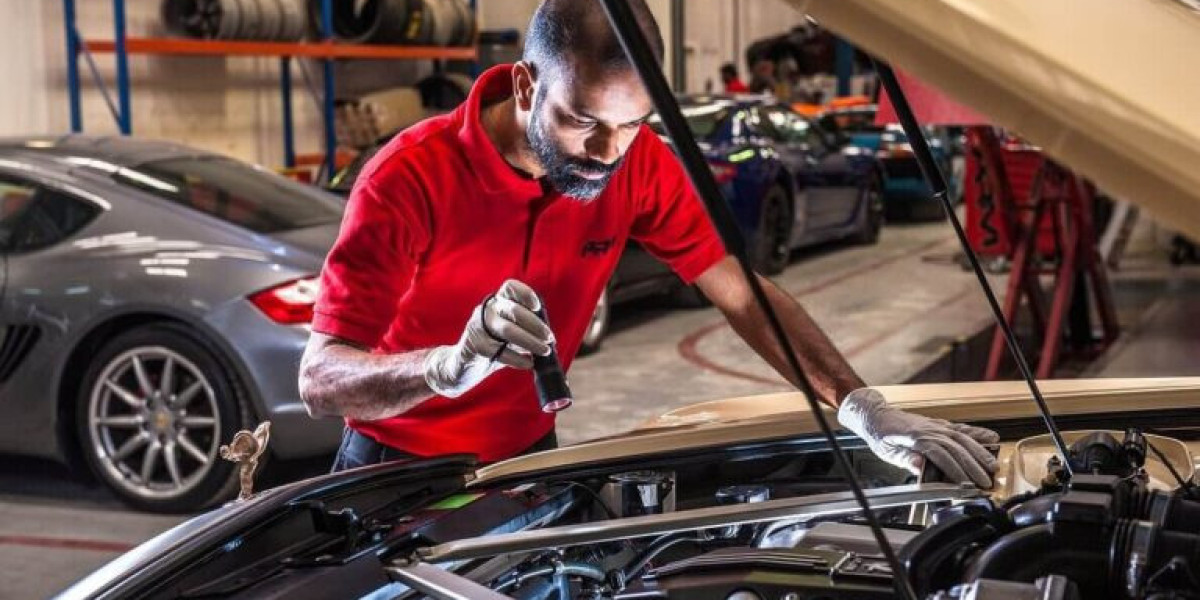Maintaining your vehicle is essential to ensure it runs smoothly and safely. In this blog, we will explore various aspects of vehicle repair, covering everything from regular maintenance to more extensive repairs. Whether you're a seasoned car owner or new to vehicle ownership, this guide will provide you with valuable insights and tips to keep your car in excellent condition.
Understanding the Basics of Vehicle Repair
Vehicle repair encompasses a wide range of services aimed at fixing and maintaining cars. These services can be as simple as changing the oil or as complex as rebuilding an engine. Understanding the basics of vehicle repair can help you identify potential issues early and take appropriate action.
Regular Maintenance
Regular maintenance is the foundation of vehicle repair. It involves routine checks and minor adjustments to ensure your car operates efficiently. Here are some key maintenance tasks:
Oil Changes
Regular oil changes are crucial for the longevity of your engine. Fresh oil lubricates the engine parts, reducing friction and preventing overheating. It's recommended to change your oil every 3,000 to 5,000 miles, depending on your car's make and model.
Tire Maintenance
Tire maintenance includes checking tire pressure, rotating tires, and aligning them. Properly inflated and aligned tires ensure better fuel efficiency and prevent uneven wear. Regularly inspect your tires for signs of damage or wear and replace them when necessary.
Brake Inspection
Your car's braking system is vital for your safety. Regular brake inspections help identify worn-out brake pads and other issues. If you notice any squeaking or reduced braking efficiency, it's time to have your brakes checked by a professional.
Common Vehicle Repair Issues
Even with regular maintenance, cars can experience problems that require repairs. Here are some common vehicle repair issues and how to address them:
Engine Problems
The engine is the heart of your car, and any issues with it can be serious. Common engine problems include overheating, misfiring, and loss of power. Regular maintenance can prevent many engine problems, but if you notice any unusual noises or performance issues, seek professional help immediately.
Transmission Troubles
Transmission issues can cause your car to struggle with shifting gears. This can be due to low transmission fluid, worn-out gears, or a failing clutch. Regularly checking and changing transmission fluid can prevent many of these problems.
Electrical System Faults
Modern cars rely heavily on their electrical systems. Problems such as a dead battery, faulty alternator, or blown fuses can cause various issues. Regularly inspect your car's electrical system and replace any faulty components.
Suspension and Steering Issues
A car's suspension and steering systems are crucial for a smooth and safe ride. Worn-out shock absorbers, struts, or steering components can lead to a bumpy ride and poor handling. Regularly inspect these components and replace them as needed.
DIY Vehicle Repair Tips
While some vehicle repairs require professional expertise, there are several tasks you can perform yourself to save time and money. Here are some DIY vehicle repair tips:
Changing the Air Filter
A clean air filter improves your car's fuel efficiency and performance. Most air filters are easy to access and can be replaced without special tools. Check your owner's manual for instructions on how to change the air filter in your car.
Replacing Wiper Blades
Wiper blades should be replaced every six months to a year. Clear visibility is essential for safe driving, especially during rain or snow. Replacing wiper blades is a simple task that can be done in a few minutes.
Checking Fluids
Regularly check your car's fluids, including engine oil, coolant, brake fluid, and transmission fluid. Keeping these fluids at the proper levels ensures your car operates smoothly and prevents potential issues.
When to Seek Professional Help
While DIY repairs are great for minor issues, some problems require professional attention. Knowing when to seek professional help can save you from further damage and costly repairs.
Warning Lights
If your car's dashboard lights up with warning signals, it's a sign that something is wrong. Warning lights can indicate issues with the engine, transmission, brakes, or other critical systems. It's essential to have a professional diagnose and fix the problem.
Unusual Noises
Strange noises, such as grinding, squealing, or knocking, can indicate serious issues. Ignoring these sounds can lead to more extensive and expensive repairs. Consult a mechanic if you hear any unusual noises from your car.
Poor Performance
If your car is not performing as it should, it may need professional attention. Reduced power, rough idling, or poor fuel efficiency can be signs of underlying problems. A professional mechanic can diagnose and fix these issues.
Choosing the Right Vehicle Repair Shop
Selecting the right vehicle repair shop is crucial for quality repairs and maintenance. Here are some tips to help you choose the best repair shop for your needs:
Research and Reviews
Research local repair shops and read customer reviews. Look for shops with positive feedback and a good reputation for quality service.
Certifications and Experience
Choose a repair shop with certified mechanics and extensive experience. Certifications such as ASE (Automotive Service Excellence) indicate that the mechanics have undergone rigorous training and testing.
Services Offered
Ensure the repair shop offers a wide range of services, including diagnostics, maintenance, and repairs. A comprehensive service menu indicates that the shop can handle various issues with your car.
Warranty and Guarantees
Reputable repair shops offer warranties and guarantees on their work. This provides peace of mind, knowing that if something goes wrong after the repair, the shop will take care of it.
Conclusion
Vehicle repair is an essential aspect of car ownership. Regular maintenance and prompt attention to issues can keep your car running smoothly and extend its lifespan. Whether you choose to perform minor repairs yourself or seek professional help, understanding the basics of vehicle repair is crucial. By following the tips and advice in this guide, you can ensure your car remains in top shape and enjoy a safe and reliable driving experience.



